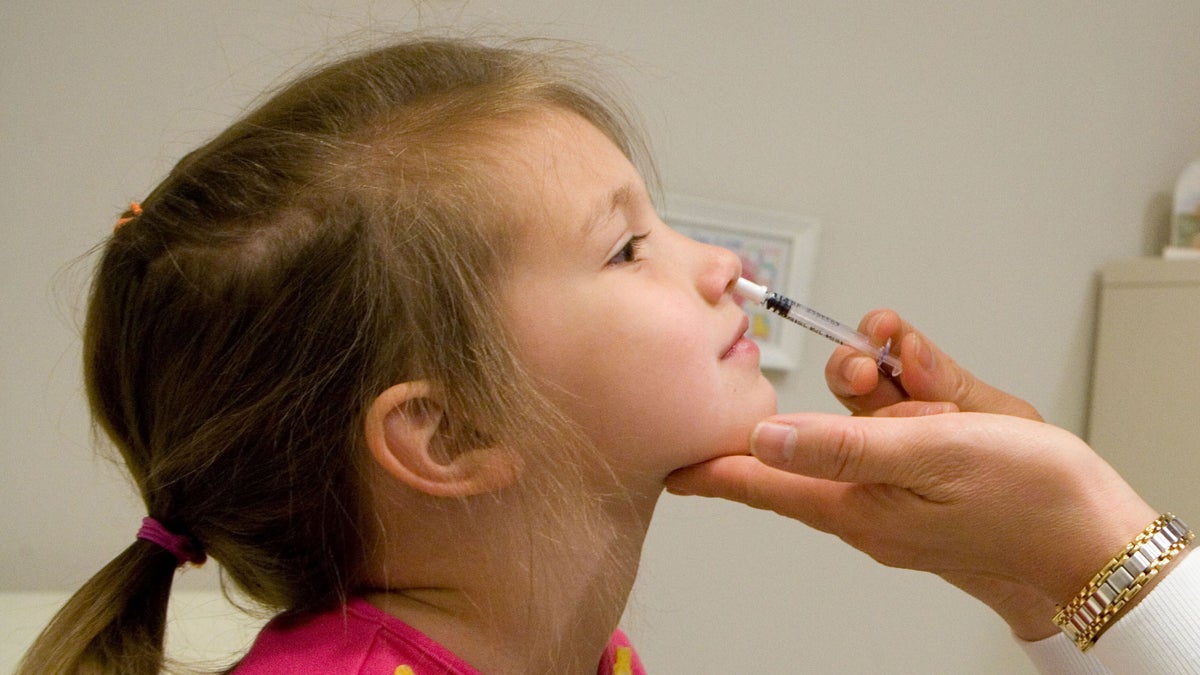Let’s put a stop to parents opting out of vaccinations for their kids
Listen
(PRNewsFoto/MedImmune
In 2014 so far, 129 Americans have fallen ill with measles, and many public health officials are pointing their fingers at parents.
This commentary was submitted by Kristen Feemster, a pediatric infectious diseases physician and researcher at the Children’s Hospital of Philadelphia and University of Pennsylvania School of Medicine.
It’s time to eliminate personal belief exemptions to childhood vaccines.
Vaccines work by protecting individuals from diseases that once threatened the fabric of our society. Think whooping cough, measles, diphtheria, and polio. But vaccines’ strength really lies in their ability to protect our neighbors, because when there aren’t enough people in a community who are immunized, we’re all at risk.
We live in a society where we cherish our right to inform ourselves and make our own decisions about how we live our lives and what we put in our bodies. And in recent years, more and more people have flexed that right — citing personal and religious beliefs as their reason to not vaccinate their children.
This has to end.
We ask our fellow citizens to follow traffic laws, submit to drug tests at work, and pay their taxes. These activities may go against our beliefs and make us bristle, but we ascribe to them because, without this shared responsibility, civil society doesn’t work. Public health is no different. Not to mention that some people — whether because of age or compromised immune systems — cannot receive vaccines. They depend on those around them to be protected.
Of course, to require this of families, we must ensure that the rewards of being vaccinated trump the risks … and they do. Vaccines are safe and effective. The significant reduction in illness and death from vaccine-preventable diseases is testimony to how well they work. Yet, ironically, this success likely contributes to the reason requests for personal belief exemptions have proliferated. Parents of 1 percent to 2 percent of kindergartners in the U.S. have chosen a non-medical exemption to one or more vaccines. Non-medical exemption rates are as high as one in 25 kindergartners in 11 states.
Without a doubt, the scientific and public health communities are responsible for ensuring vaccine safety, listening to the public’s concerns, and providing accurate and clear information. But our most important charge is to ensure the health of the communities in which we all live.
Recent outbreaks of diseases like measles, mumps, and whooping cough throughout the U.S. have painfully illustrated the key role vaccines play in keeping our families — and our neighbors — healthy. Sometimes we have to do something we don’t fully subscribe to for the greater good of our society.
WHYY is your source for fact-based, in-depth journalism and information. As a nonprofit organization, we rely on financial support from readers like you. Please give today.



